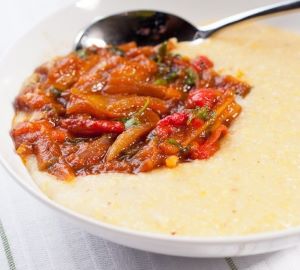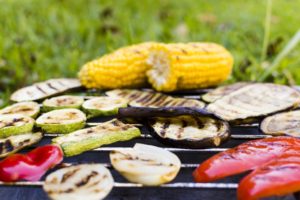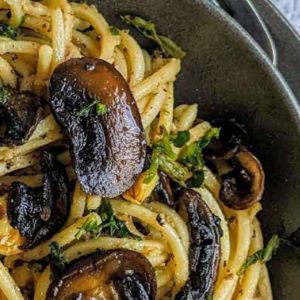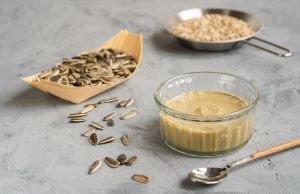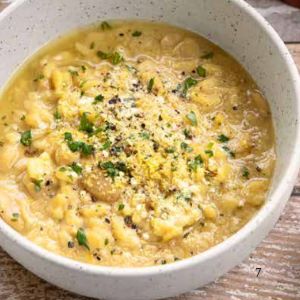Posted on
June 12, 2025 by
The VRG Blog Editor
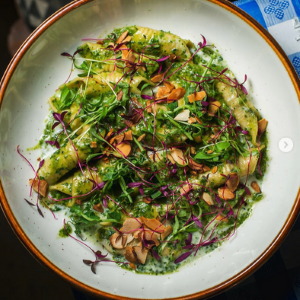 Photo from Unwind
Photo from Unwind
The Vegetarian Resource Group maintains an online Guide to Vegan/Vegetarian Restaurants in the USA and Canada. Here are some recent vegan restaurant additions. The entire guide can be found here: www.vrg.org/restaurant
To support the updating of this online restaurant guide, please donate at: www.vrg.org/donate
Here are some new additions to VRG’s guide:
Bubbies Plant Burgers and Breakfast, 1721 Crystal Dr., Arlington, VA 22202
Serving breakfast daily and Kosher Certified, Bubbies Plant Burgers offers a large menu, listing plenty of gluten-free options and a kids’ menu. Breakfast choices include Orange Jules, crafted with freshly juiced Navel and Blood orange; creamy vanilla and banana in a cup; and several house-made vegan egg and cheese sandwich variations. One example is Grilled Cheese Egg and Avocado (house-made egg, mashed avocado, red pepper slices, and yum sauce) on a grilled inside out potato roll with various add on options. There’s also Fried Chick’n and Waffle Sammie showcasing fried plant-based chick’n in hot maple agave. At Bubbies, a Monkey Wrench in your plans is a plant-based burger, house-made American cheddar, fried onion ring, pickled jalapeno, lettuce, tomato, pickle, and BBQ sauce on a roll. Another Sammie is Panko Fried Green Tomato Club with house-made American Cheddar, plant belly bacon, tomato, and agave mustard. Italian Chopped Cheese features Italian seasoning, grilled onions, red peppers, cheddar, pepper jack, parmesan, on a Philly style hoagie roll. Caesar Fried Chick’n Burrito offers fried plant-based chick’n, rice, capers, parm cheese and Caesar dressing in a grilled, soft tortilla. Oaxaca Cheese Quesadilla is a large, soft flour tortilla, grilled with house-made cashew cheese, cashew crema, and yum sauce. Crafted from mushroom root, Grilled Steak Salad is served with cashew bleu cheese, greens, fresh dill, red pepper, onion, tomato, pickled carrot, cucumbers, fried shallots, and cherry blossom balsamic vinaigrette. For your Side hustle, besides House-Roasted Sriracha Cashews, they serve many types of fries like Parmesan Garlic Herb, Sweet Potato, and Avocado Fries–Avocado wedges fried in seasoned fry mix, with a side of yum sauce and grape sauce. Sweets include hand-spun Milkshakes with house-made Vanilla, Fresh Strawberry, Chocolate Tahini and Pistachio, oat ice cream, classic malt shop style soy Ice Cream Floats, Almond Butter Cookie with butterscotch and white chocolate, made in house, rotating Muffin assortments, and more.
Level 5 Donuts, 2068 Atwood Ave., Madison, WI 83704
Level 5 Donuts is happy to be cruelty-free, proclaiming, “There are no animals harmed in the production and distribution of our Donuts.” Yay to that! Besides being 100% vegan, their products are also nut and nut milk free unless labeled otherwise. This place is obviously all about the donuts–all kinds of donuts! Just a few of the myriad of donut flavors are several Chocolate varieties, Boston Dream, Churro, Strawberry Rhubarb Crisp, Caramel Brownie, Blueberry Lemon, Chai, Oreo, Apple Fritters, Hazelnut Fudge Brownie, Berry Cheesecake, Maple Long John, Mango Chile, Matcha, Cherry Almond, Chocolate Chess Pie, Almond Joy, Strawberries and Cream…Well, you get the idea! If savory is what you crave, they even have a Garlic Chive Cream Cheese Donut with everything bagel seasoning!
Mike’s Vegan Grill, 609 S. 15th St., Unit 111, Wilmington, NC 28412
Mike’s Vegan Grill features a regional take on classic comfort foods like sandwiches, burgers, hot dogs, and loaded fries. They do offer combos; try the BBQ Sandwich, the Carolina Burger, the Philly Cheesesteak, or the Carolina Hot Dog with one of their many french fry options. The BBQ Sandwich was bold and delicious, with a unique texture, while the Philly was made from Beyond Beef and was accompanied with peppers and onions, seasoned, and served on a soft bun. The Carolina Dog was flavorful and included coleslaw, while the Fiesta Fries were loaded with chili, tomatoes, onions, and a delicious spicy mayo.
Sunshine Vegan Eats, 893 Jefferson Ave., Buffalo, NY 14204
At Sunshine Vegan Eats, breakfast brings many choices such as Cajun Cheesy “Shrimp” and Grits Polenta with Cajun seasonings and vegan cheese, vegan Chicken and Waffle, Hot Cakes, French toast, Burrito options, and more. Some appetizers are sautéed Brussels Sprouts in house-made apple glazed sauce; Flatbread Pizza with sautéed mushrooms, buffalo sauce, mozzarella cheese, spinach, peppers, red onions, balsamic drizzle, and a side of ranch; Impossible Egg Rolls stuffed with a blend of Impossible, cabbage, and peppers with sweet chili sauce; and house made impossible Pastelillos with vegan cheese, peppers and onions. There are Wraps, Burgers and Hoagies too like spinach Sunshine Vegan Wrap with spicy kale, vegan mayo, sun-dried tomato and sweet coconut corn couscous; seasoned Jerk Cheesesteak with mushroom, melted cheese, sautéed peppers, onions, salad fixings; and more. Entrées include pan seared, demi-glazed Lions Mane Mushroom, with garlic whipped mashed potatoes and spinach, as well as 893 Fried Chicken—oyster mushroom pieces in SVE seasonings, cornbread, and Sides. Entrée Sides include Yam, Jalapeño Cornbread, Collard Greens simmered in SVE seasonings, onions, and peppers, and other choices. They also offer daily specials like fried banana blossom Fish Tacos with lettuce, tomato, and vegan tartar; Lasagna Roll Ups—a mushroom blend with Impossible, spinach, house-made ricotta and mozzarella; Carrot Tuna; and more. They have smoothies, teas and fresh juices too. For dessert there’s Peach Cobbler, Banana Pudding, and Chocolate Chip or Oatmeal Raisin Cookies.
Taste: Plant Based, 771 NJ-168, Blackwood, NJ 08012
No time to cook or need a quick lunch on the go? Founded and owned by a vegan, registered dietitian who is passionate about creating “tasty, nutrient-dense foods,” Taste: Plant-Based has you covered. Prepackaged meals, soups, and salads are all made onsite and include many gluten-free options. Happy to support local, plant based businesses, they also offer a limited selection of shelf-stable, refrigerated and frozen grocery and snack items. Some salads are Corn and Pea with Cucumber, Grape Tomato, Vegan Mozzarella Shreds, and Apple Cider Vinaigrette and Mixed Grain with Barley, Quinoa, Lentils, Dried Cranberries, Sunflower Seeds, Cilantro, and Brown Sugar. Soups include Pumpkin Spice with Carrot, Onion, Oat milk, Cinnamon, Ginger, Nutmeg, Brown Sugar, Apple Cider Vinegar, and Vegetable Broth; Chickpea Noodle featuring Fusilli, Carrot, Celery, Onion, Garlic, Oat milk, and Vegetable Broth; and Chunky Potato with Carrot, Celery, Onion, Garlic, Marjoram, and Nutmeg. There’s also Hearty Vegetable, Mediterranean Bean and more. Meals include Eggplant “Meatballs” with White Kidney Beans, Onion, Garlic, Panko, and Marinara; Mushroom Chick’n and Rice made with Onion, Flour, Vegan Butter-Style Spread, Soy Sauce, and Parsley; Red Bell Stuffed Peppers with Chickpeas, Rice, Button Mushrooms, Vegan Mozzarella-Style Shreds, Marinara, and Parsley; Chickpea Tikka Masala featuring crushed tomato, Oat milk, Onion, and Indian Seasoning; Hearts of Palm Cakes crafted with Onion, Bell Pepper, Panko Breading, Vegan Mayo-Style Spread, Garlic, Chili Powder, Soy Sauce, Apple Cider Vinegar; and Dill and White Bean and Basil Ravioli with Vegan Mozzarella-Style Shreds, Marinara, and Parsley. Besides all this, they have Chick’n Parm, Vegan Chili, Asian-Style Brown Rice and veggies, Gluten-Free Mac ‘n’ Cheeze, and still more!
Unwind, 916 SE 34th Ave., Portland, OR 97214
Unwind is a vegan food truck offering pasta, small plates, and charcuterie boards. Shareables include panisse with mushroom duxelle and white cheddar as well as polenta with mushrooms, roasted calçot, and pickled potato. Charcuterie boards offer a rotating selection of vegan cheeses as well as antipasto, seasonal jam, and mushroom pate. Tortelli with kohlrabi purée and pickled ramps, garganelli with fava beans and sugar snap peas, and parisian gnocchi with grilled nopales and caramelized onion are among the entrées available on the menu.
Voagies, 1542 Ralph David Abernathy Blvd., Atlanta, GA 30310
Voagies serves all types of vegan hoagie sandwiches!
